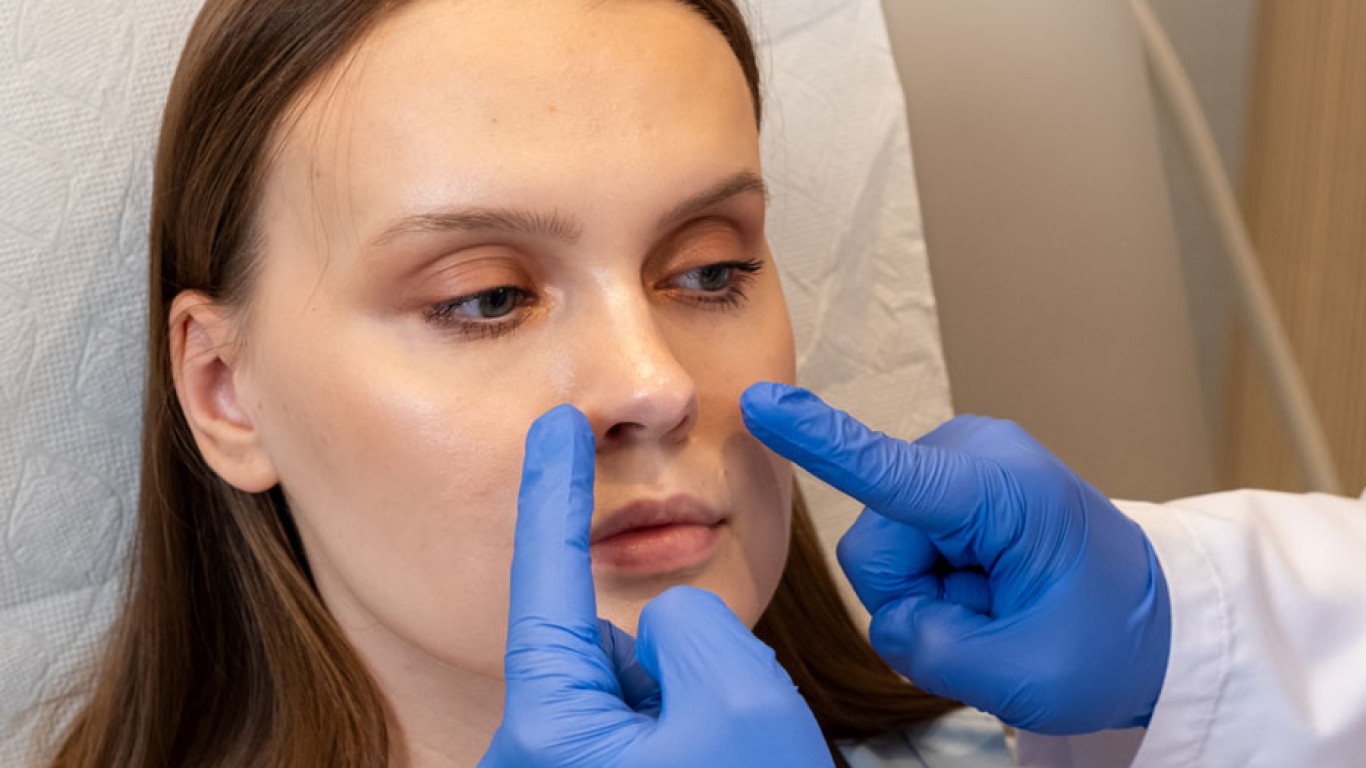Introduction
A deviated septum is more common than many realise. This condition occurs when the nasal septum, which divides the nostrils, is uneven or crooked. While mild cases may go unnoticed, moderate or severe deviations can disrupt breathing, sleep and daily comfort. Understanding how a deviated septum affects your health can help identify when treatment becomes necessary.
So, What Is a Deviated Septum?
The nasal septum is a thin wall of bone and cartilage separating the two nasal passages. Ideally, it sits straight and balanced, allowing even airflow through both sides. A deviated septum develops when this structure shifts or bends to one side. Some people are born with it, while others may develop it after an injury or trauma. Regardless of the cause, a deviated septum can narrow one nasal passage, making breathing less efficient. This imbalance can create several health issues that affect both comfort and quality of life.
Deviated Septum: Breathing Difficulties and Nasal Congestion
One of the most common effects of a deviated septum is difficulty breathing through the nose. Because one side is narrower, airflow becomes restricted. This often causes chronic congestion, even if you don’t have a cold or allergy. Patients frequently notice that one nostril feels blocked, especially at night or during exercise. As a result of this, they may breathe through their mouth, which can cause dryness and discomfort. Over time, this imbalance leads to fatigue and reduced oxygen intake, affecting overall wellness.
Deviated Septum: Sleep and Snoring Problems
A deviated septum significantly impacts sleep quality. When airflow is uneven, the body compensates by increasing breathing effort, leading to disrupted rest. Snoring becomes common as air vibrates against narrowed passages. Some individuals may even develop sleep apnoea, a condition where breathing pauses repeatedly during sleep. This in turn can cause morning headaches, tiredness and irritability. Improving nasal structure often helps patients breathe quietly and rest deeply again. Treating a deviated septum, therefore, supports both health and daily energy.

Deviated Septum: Frequent Sinus Infections
Chronic sinus infections are another side effect of a deviated septum. Because mucus can’t drain properly, bacteria and allergens build up within the sinuses. This leads to inflammation, pressure and discomfort. Patients often note experiencing facial pain, nasal congestion and persistent postnasal drip. Over time, recurring infections become frustrating and may require repeated medication. Correcting the septal deviation restores natural airflow, reduces infection risk and relieves pressure on the sinuses.
What’s The Impact on Smell and Taste?
A deviated septum can also affect the sense of smell and, subsequently, taste. When airflow is obstructed, scent particles cannot reach the olfactory receptors effectively. As a result, smells may seem faint or distorted. Because taste and smell are so closely linked, this issue can reduce enjoyment of food and daily experiences. Once the septum has been corrected and airflow improves, both senses often return to normal. Patients frequently describe this as one of the most rewarding outcomes of treatment.
Headaches and Facial Discomfort
Uneven nasal airflow may lead to frequent headaches or pressure sensations. This happens because swollen nasal tissues and blocked sinuses create tension around the forehead, eyes and cheeks. What’s more, constant mouth breathing can cause dryness and throat irritation. These symptoms can mimic migraines, and this makes diagnosis challenging. However, once identified, treatment of a deviated septum usually provides lasting relief. Patients often report reduced discomfort and clearer, easier breathing following surgical correction.
Daily Challenges From a Deviated Septum and Quality of Life
Living with a deviated septum can impact many aspects of daily life. Activities like exercising, sleeping or even focusing at work become more tiring. Because breathing feels restricted, individuals often report feeling less energised. Additionally, ongoing congestion affects confidence and comfort in social situations. People may avoid outdoor activities or struggle with fatigue during the day. Over time, this discomfort can negatively impact overall happiness and productivity. Corrective procedures help restore normal breathing and significantly improve life satisfaction.
Treatment Options for a Deviated Septum
Treatment will depend on the severity of the deviation and associated symptoms. Mild cases may improve with medications used for reducing swelling and congestion, such as nasal sprays or antihistamines. However, these offer temporary relief rather than permanent correction. For more significant deviations, septoplasty is the most effective surgical solution. This procedure straightens the septum, opening both nasal passages. It’s usually performed under general anaesthesia and takes less than two hours. Recovery is straightforward, and patients typically breathe better within weeks.
Benefits of Correcting a Deviated Septum
Fixing a deviated septum offers multiple health benefits. Firstly, breathing becomes easier, especially during sleep or exercise. Secondly, it reduces the risk of sinus infections and nasal inflammation. Thirdly, improved airflow enhances sleep quality and oxygen levels. Patients often notice a clearer mind, better concentration and fewer headaches. Emotional wellbeing also improves because easier breathing promotes relaxation and confidence. Because correction enhances both function and comfort, it provides one of the most rewarding improvements in facial health.
When Should I See a Specialist?
Do you experience chronic congestion, frequent sinus infections or loud snoring? It might be time to consult a specialist. An ear, nose, and throat (ENT) doctor can perform an examination using imaging or nasal endoscopy to assess septal deviation. During consultation, your specialist will explain suitable treatment options based on individual anatomy. Early evaluation ensures proper care before symptoms worsen. Many patients find relief soon after receiving diagnosis and appropriate intervention.
Conclusion
A deviated septum can quietly affect breathing, sleep and overall comfort for years. However, recognising its impact allows timely action and lasting relief. Correcting the septum restores airflow, reduces infections and enhances both health and confidence. Consulting a specialist is the first step towards easier breathing and improved quality of life.
Concerned you may have a deviated septum? Find more information and book a consultation via the ACIBADEM Beauty Center website.
Frequently Asked Questions
No, a deviated septum will not correct itself naturally; treatment may be necessary for relief.
Mild cases can be managed with medication, but septoplasty provides permanent structural correction.
Most patients resume normal activities within one to two weeks after surgery.
Not always, but moderate to severe cases often cause persistent nasal congestion and difficulty breathing.
Yes, many patients experience quieter breathing, deeper sleep, and reduced snoring after correction.














